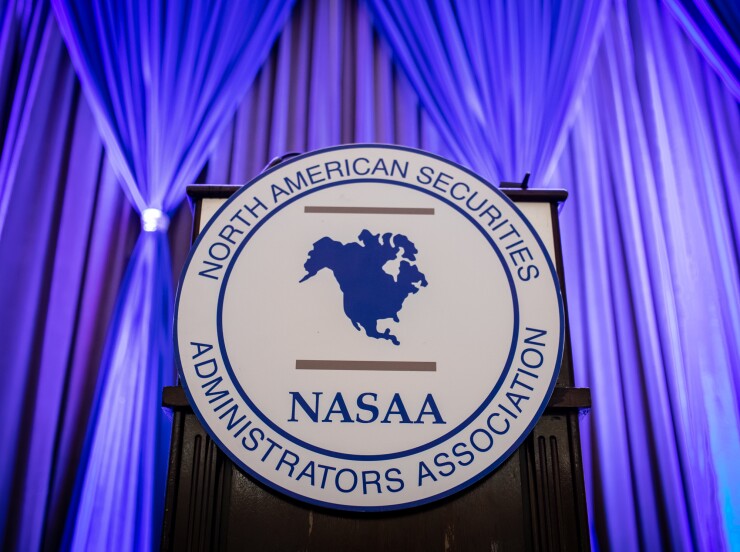Jamie Lima, a certified financial planner near San Diego, said he still has nightmares about studying for his Series 7 license to sell general securities while at Morgan Stanley in the mid-2000s.
"When you worked for Morgan Stanley then, it was basically 'here's an office, and here are the study materials,'" Lima said. "Pass the test or you don't have a job."
So when he was looking to open his own financial advisory firms more than a decade later, he was loath to lose his Series 7 that allowed him to deal in stocks, corporate and municipal bonds and similar products. At the same time, he didn't want to deal with the compliance burden that would come with keeping the license, especially when he needed to devote his energy and time to his new business.
The advisory firm he eventually opened in Ramona, California, in June 2020 — Woodson Wealth Management — would not be trading in securities. So there was no need for the Series 7 license, at least in the immediate future. Still, he could hardly bear the thought of taking that exam again should he want that license at a later date.
Fortunately for him, as he later learned,
"These rules are designed to provide flexibility for currently registered persons who, due to various reasons, may need to leave and then return to their positions," NASAA President Melanie Senter Lubin said in a
Stephen Bouchard, chairman of NASAA's broker-dealer section committee and associate commissioner of securities in the District of Columbia Department of Insurance, Securities & Banking, said NASAA's model rules are mainly meant to ensure state regulators' policies mirror FINRA's.
"It behooved the state to consider cooperating and coordinating with this in order to maintain what has been historical consistency," Bouchard said.
Even with the opportunity to reclaim his Series 7 license without taking another exam, Lima has no immediate intentions of dealing in stocks, bonds and other securities. But his firm is still growing. So why shut off opportunities?
"We are always looking for new strategies and trying to find advisors with other areas of expertise to bring on to the team," Lima said.
Opening a new firm is only one of many reasons an advisor might want to allow a lapse with FINRA or state regulators to lapse for a bit. For others, it's the birth of a child, the need to take care of an ailing relative or a serious illness.
Before the adoption of FINRA's new policy, brokers and advisors could let their licenses lapse for only two years before they'd have to take an exam again. Federal regulators decided that was too short a period for people dealing with major life events.
FINRA's policy allows brokers and advisors whose registrations were terminated to sign up for continuing education through its so-called Maintaining Qualifications Program. To qualify, a person must have allowed their registration to lapse on or after March 15, must sign up for the program within two years of their registration's termination and not be subject to statutory qualification because of a criminal record or disciplinary matters.
Since NASAA's model rules are only policy recommendations, they still await official adoption by individual states. Lima said he can only welcome the rule change.
He estimated he already spends about 60 hours a year on continuing education to maintain the licenses he needs to be a financial advisor. A few more hours a year is not too much to ask, especially if that allows him to keep a license he had to work so hard to get in the first place.
"I did work really hard for that license," he said.








